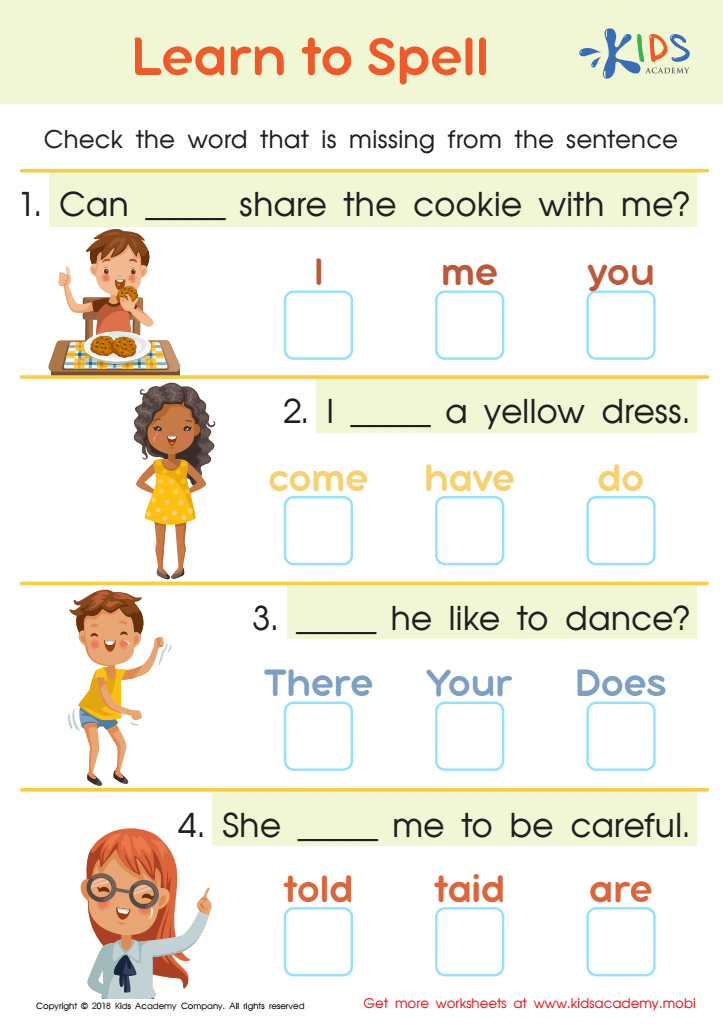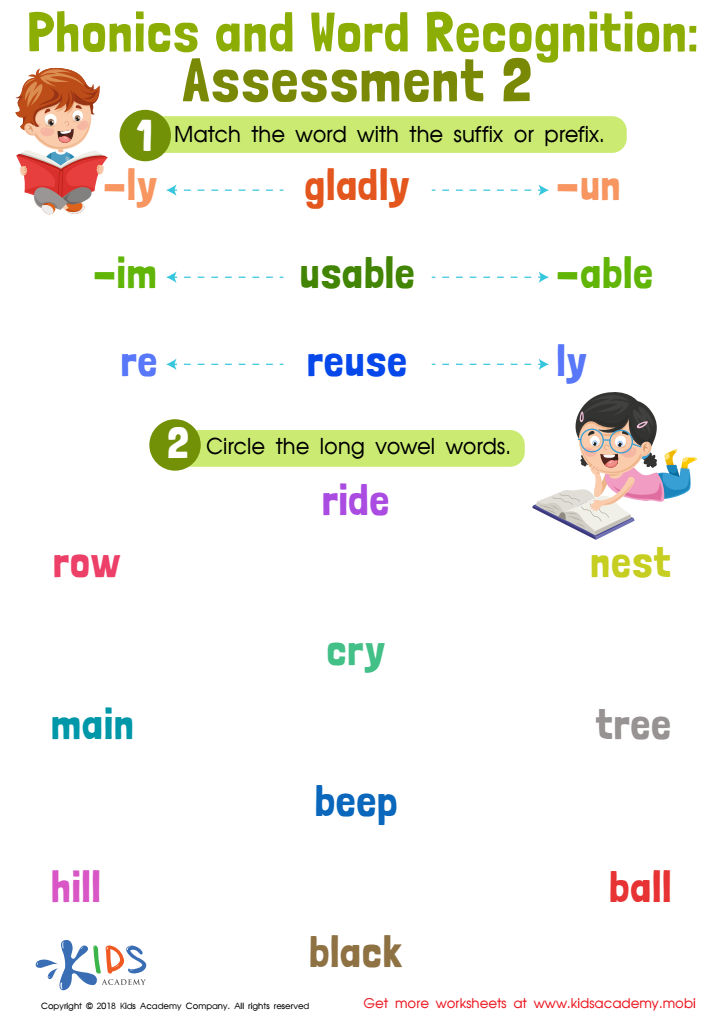Word identification Building Vocabulary Worksheets for Ages 4-9
5 filtered results
-
From - To
Discover our Word Identification Building Vocabulary Worksheets tailored specifically for children ages 4-9. These engaging, educational activities are designed to enhance your child's reading and vocabulary skills through playful learning. Our worksheets focus on key areas such as sight words, phonics, and context clues, fostering a strong foundation in word recognition. Perfect for both classroom and at-home use, these resources make learning enjoyable and effective. Equip your young learner with the tools they need to succeed in reading and vocabulary. Start your child on the path to reading confidence with Kids Academy’s expertly crafted worksheets today!


Learn to Spell Worksheet


Phonics and Word Recognition: Assessment 1 Worksheet


Phonics and Word Recognition: Assessment 1 Worksheet


Phonics and Word Recognition: Assessment 2 Worksheet


Phonics and Word Recognition: Assessment 2
For parents and teachers, focusing on word identification and building vocabulary for children ages 4-9 is crucial because this period represents a critical window of opportunity for language development. During these formative years, children's brains are highly receptive to learning new words, meanings, and connections, which serve as the foundation for effective communication and literacy skills.
Word identification helps children recognize and understand the meaning of words, which is essential for reading fluency and comprehension. When children can quickly identify words, they spend less cognitive effort on decoding and more on understanding and enjoying the story they are reading. This skill not only bolsters their ability to read but also fosters a lifelong love for reading.
Expanding vocabulary is equally important. A rich vocabulary enhances children's ability to express themselves more precisely and creatively. It improves their listening skills and aids in better understanding instructions and conversations, both in and out of the classroom. A strong vocabulary is positively correlated with academic performance, as it supports learning across all subjects, including science, math, and social studies.
By emphasizing word identification and vocabulary, parents and teachers set the stage for children's overall academic success and interpersonal development, making it a foundational aspect of early education.
 Assign to My Students
Assign to My Students




















